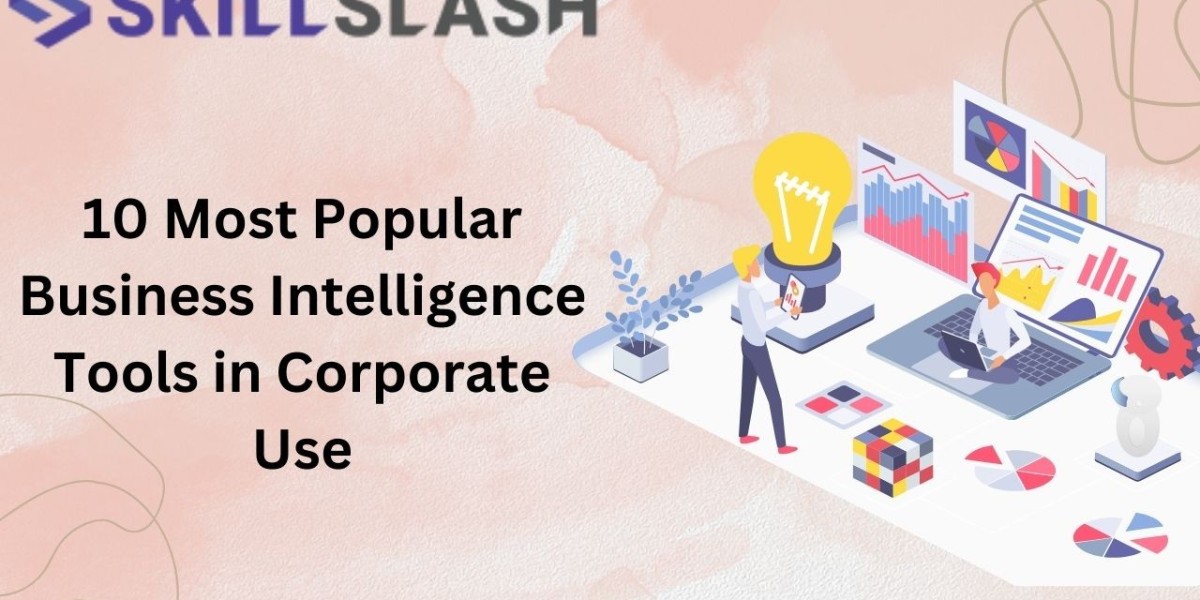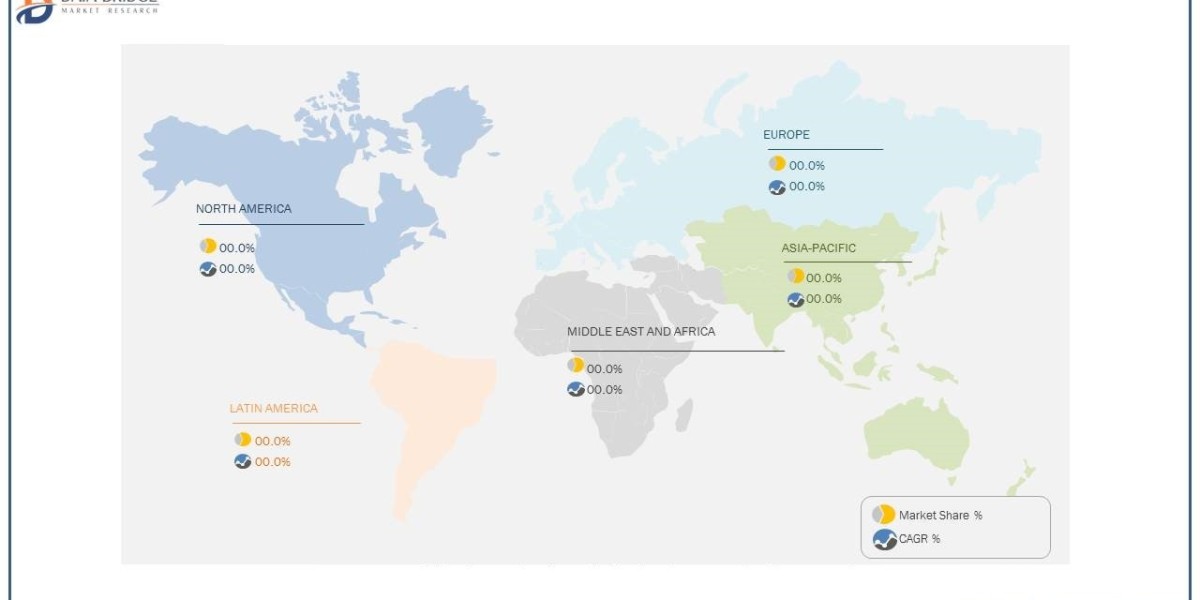BI (Business Intelligence) has revolutionized the way businesses operate in today’s data-driven environment. These tools are the foundation of effective decision-making and allow companies to extract value from their vast collections of data. As the demand for business intelligence continues to grow, so does the variety of BI tools available. Whether you’re a small startup looking for easy-to-use analytics or a large corporation looking for complex data modeling solutions, there’s a BI solution for you.
Each tool has its own strengths and advantages. As the BI landscape evolves, staying up-to-date on the most popular options is essential for businesses looking to stay ahead of the competition and stay agile in the ever-changing business landscape.In this article, we’ll dive into the world of business intelligence and explore 15 of the most popular BI tools currently in use across the corporate world.
Whether you’re looking for simple data visualization or advanced analytics, we’ve got you covered.
Let’s take a journey through 10 of the best business intelligence tools that are transforming the way organizations use data to their advantage.
What are Business Intelligence (BI) Tools ?
BI tools are software programs and platforms for collecting, processing, analyzing, and visualizing data from a variety of sources to support decision-making within an organization. BI tools play an essential role in modern business processes by helping companies transform raw data into useful insights. BI tools are mainly used for reporting and analysis of data. They help organizations consolidate data from various systems and databases, convert it into a more user-friendly format, and then display it in an interactive dashboard, report, chart, or graph. These visual representations help make complex data more comprehensible and enable users, including executives and data analysts, to identify trends, identify anomalies, and make decisions based on data-driven insights.
BI tools play an important role in various business functions such as:
- Finance
- Marketing
- Sales
- Supply chain management
- Human resources
BI tools help organizations gain a comprehensive view of their performance and identify areas for improvement. In addition, many BI tools often include advanced analytics capabilities, including predictive modeling, data mining, etc. This allows organizations to predict future trends, streamline operations, and gain a competitive advantage. Today, many BI solutions are available in the cloud, which means they can be accessed from anywhere at any time, allowing for collaboration between teams and different departments.
As the business environment becomes more data-driven, BI tools will continue to develop and play an increasingly important role in enabling companies to remain competitive in a rapidly changing environment.
15 Business Intelligence tools you should know
Business Intelligence (BI) tools have become a must-have in today’s corporate landscape. They enable organizations to make informed decisions based on data and extract valuable insights from data.
Here are 15 of the best BI tools in corporate use :
1. Tableau
Tableau has become a go-to business intelligence tool for many companies. It's easy to use and easy to understand, and it's accessible to both tech and non-tech users. Companies use Tableau to turn raw data into actionable insights in the form of interactive reports, dashboards, and visualizations. Plus, it connects to lots of different data sources, so you can analyze data from all kinds of sources quickly and easily. You can drag and drop your visualizations to create custom ones, so you can get the most out of your data. Finally, Tableau has lots of features that make it easy for teams to work together and share their insights across the company.
One of the biggest benefits of using Tableau as a corporate BI tool is that it can scale with you. No matter how big or small your business is, Tableau will be able to keep up with your ever-changing needs. Plus, you can choose from a range of cloud-based options, which makes it easier to share data and collaborate across different teams, no matter where they are in the world. And, with Tableau's advanced analytics, you can dive right in and start making predictions and recommendations about the future.
All in all, Tableau is a must-have tool for any business looking to get the most out of their data and stay ahead of the competition.
2. Microsoft Power BI
Microsoft Power BI is one of the most popular BI tools used in corporate settings because of its powerful data analytics and visualization. It's easy to use and integrates seamlessly with Microsoft products, so it's a great choice for companies that already use Excel, Azure, or SharePoint. With Power BI, you can easily connect to a bunch of different data sources, turn raw data into useful insights, and make dashboards and reports with ease. Plus, its user-friendly interface lets both tech and non-tech users explore and analyze data. It also encourages collaboration and sharing, so teams can work together on data-related projects and share insights across the company. Power BI can handle huge datasets quickly and easily, and it has advanced analytics capabilities like DAX and M, so you can do complex calculations and get deeper insights. Plus, it's cloud-based, so you can access your data from anywhere. All in all, Microsoft Power BI helps you get the most out of your data and make informed decisions.
3. QlikView/Qlik Sense
QlikView is one of the most popular business intelligence tools. It is known for its associative data model, which allows users to explore data relationships freely and uncover insights that may otherwise be hidden.In a corporate environment, these tools allow organizations to take their data exploration and analysis to the next level.
With the help of QlikView or Qlik Sense, organizations can make decisions based on data discovery in real-time.Corporations use these tools for extracting actionable insights, identifying trends, and enabling collaboration among teams. Both of these tools offer robust self-serve BI capabilities. Non-technical users can create reports and dashboards on their own, eliminating the need for IT departments to perform data analysis tasks.
These two tools are ideal for corporations looking for agile and interactive solutions to their business intelligence needs while also allowing them to adapt to changing data challenges.
4. Looker
Looker is a popular business intelligence tool that's widely used in corporate settings. It's all about data exploration, collaboration and user-centricity. Companies use Looker to connect with different data sources, make reports that are interactive and customizable, and create a data-focused culture. Looker's modeling layer makes it easy to transform and model data, so users have clean and useful data. Plus, Looker emphasizes data governance, so it's a go-to choice for companies that need strict control over access and security.
Looker's main advantage is its collaboration capabilities. It's a central platform where teams can collaborate on data projects, exchange insights, and make decisions based on data. This is especially important in corporate settings, where teams from different departments need to access and work together on data to solve complicated business problems.
5. SAP BusinessObjects
SAP is a popular business intelligence tool that helps companies get the most out of their data. It's easy to use and integrates with lots of different systems, so it's great for businesses with a variety of data sources. It's great for creating reports and dashboards that show complex data in an easy-to-understand way, and it's scalable so it can be used by any size organization. Plus, it has advanced analytics features and data visualization support, so it's a great choice for businesses looking for a comprehensive BI solution that can handle their changing data needs.
6. IBM Cognos Analytics
Cognos Analytics is one of the most popular and widely used business intelligence tools. It plays an important role in the decision-making process of many corporations. Cognos Analytics has a wide range of features that make it a preferred tool for many organizations.
Cognos Analytics excels at data visualization, reporting and data exploration, allowing corporations to gain valuable insights from data. It has a user-friendly interface that makes it easy for both technical and nontechnical users to create intuitive reports and dashboards.In addition, Cognos Analytics is AI-driven, allowing it to generate insights and recommendations automatically, saving time and improving decision-making.
Many corporations value Cognos Analytics because of its scalability, which makes it suitable for businesses ranging from small to large multinational companies. It also has robust security features that protect sensitive corporate data and ensure compliance with data privacy rules.
7. MicroStrategy
MicroStrategy is one of the BI tools used by companies that is known for its strong integration and scalability, plus it can access data in real-time, making it a great choice for companies dealing with big and complicated data sets. Companies can use MicroStrategy to make interactive dashboards and reports, as well as mobile applications, so they can get the most out of their data. Plus, its in-memory technology makes query performance super fast, so you can make data-driven decisions quickly. It also has great security features so it’s great for companies with strict governance needs, like finance and healthcare.
Finally, companies love that MicroStrategy supports self-service BI so they can explore data, make reports, and collaborate on insights all in one place, and it’s cloud-based, so you can use it whenever you want.
8. Domo
Domo is a powerful and easy-to-use business intelligence tool that’s become popular in corporate settings because of its real-time data integrations, visualization and collaboration features. Domo consolidates data from multiple sources so that decision-makers can access and analyze data in a centralized and easy to digest format. The user-friendly drag and drop interface makes Domo easy to use by both technical and non-technical users.
With Domo you’ll be able to make data-driven decisions in real-time. The collaboration features allows teams to share insights and dashboards and reports to improve cross-functional collaboration across different departments and improve overall efficiency in corporate operations.
9. Sisense
Sisense has become a popular business intelligence tool in corporate settings because it can quickly and easily prepare and transform large and complex data sets. It makes data easier to access and use for analysis, so businesses can focus on getting insights instead of dealing with data integration issues. It also has an easy-to-use drag-and-drop interface, so business users can create their own custom reports and dashboards without having to spend a lot of time on technical stuff. Plus, businesses can use Sisense for real-time analysis, so they can keep an eye on their performance and act quickly when market conditions change.
10. Pentaho
Pentaho is used in the corporate world due to its flexibility and cost-effectiveness. It is an open-source BI platform that integrates data, reports, and analytics to help organizations get the most out of their data. Pentaho makes it easy to extract, transform, and load data from different sources into a single format, making it easier to extract valuable insights from complex data sets.
In addition, Pentaho’s reporting and analytics tools allow corporate users to build interactive dashboards, reports, and dashboards that make it easier to make data-driven decisions. Because Pentaho is an open source platform, companies can choose to deploy it on their own IT infrastructure or choose to use a cloud-based solution. All in all, it is a great BI tool for businesses looking for an affordable, customizable, scalable solution that will help them make the most of their data.
In Conclusion, the most suitable Business Intelligence tool for your organization is dependent on your individual needs. Tableau, Power BI, and others are often preferred due to their versatility and broad adoption. However, other tools, such as Qlik Sense, and Looker, excel in specific areas. It is important to evaluate your organization's specific requirements, take into account factors such as scalability, usability, and integration, and conduct an in-depth assessment or trial to identify which tool best suits your business goals and resources. It is also important to note that the BI environment is constantly changing, so it is essential to stay ahead of the latest developments in order to make informed decisions.








